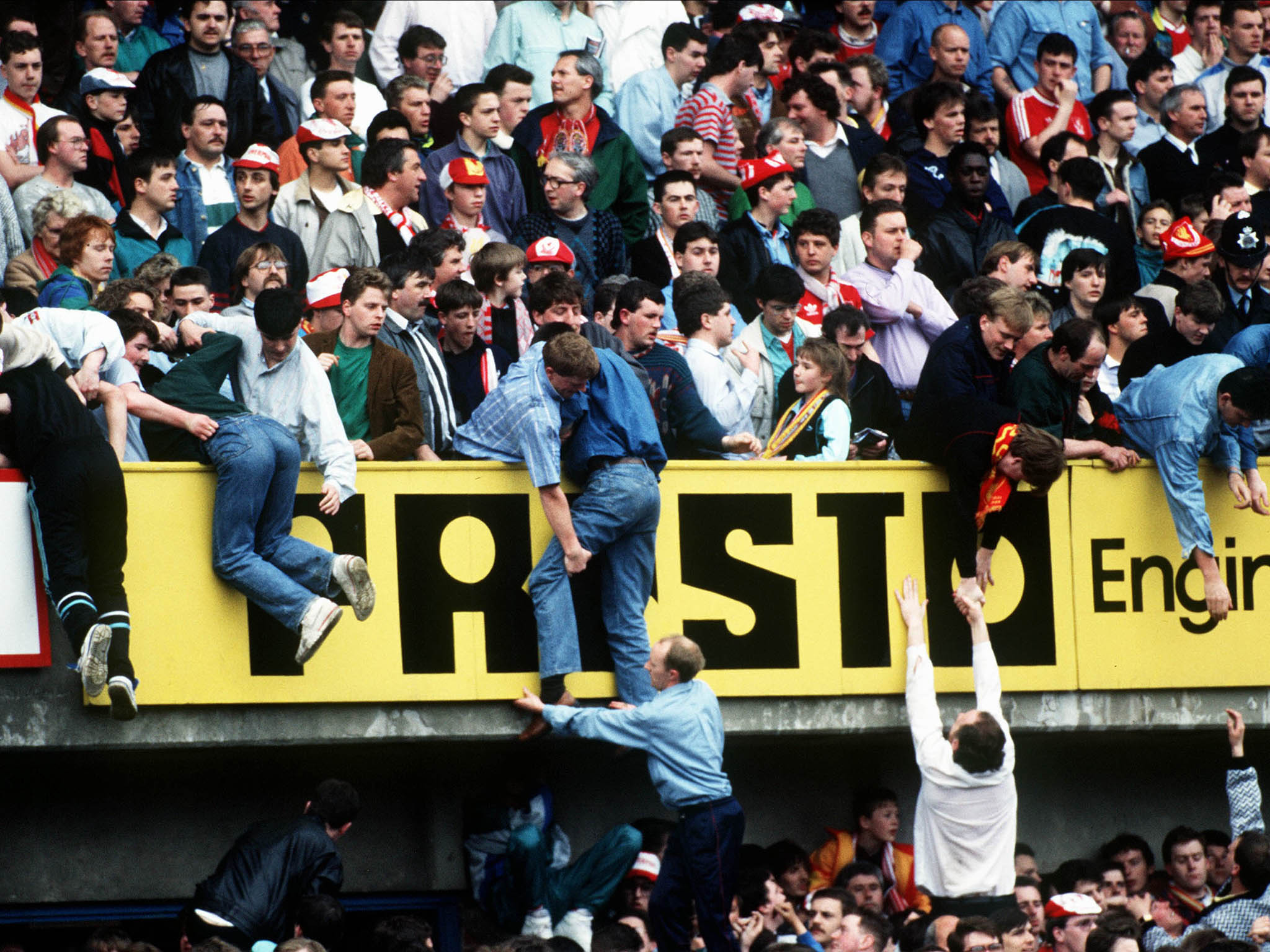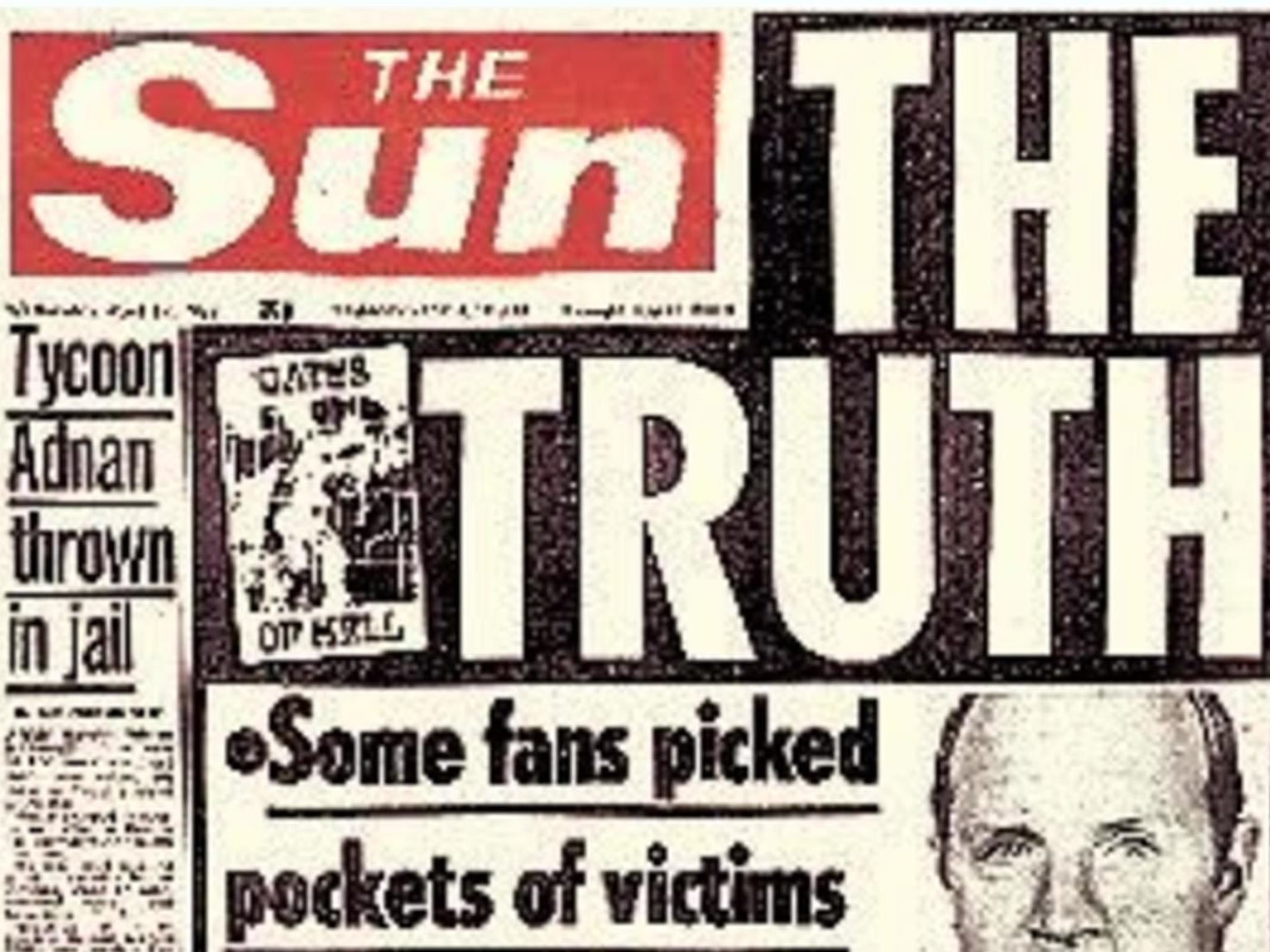Hillsborough was not a football problem or Liverpool issue, but a breakdown of civic services with the victims blamed
When public servants charged with protecting us fail, they must be called to account. That has not happened for 28 years. It needs to happen now

Your support helps us to tell the story
From reproductive rights to climate change to Big Tech, The Independent is on the ground when the story is developing. Whether it's investigating the financials of Elon Musk's pro-Trump PAC or producing our latest documentary, 'The A Word', which shines a light on the American women fighting for reproductive rights, we know how important it is to parse out the facts from the messaging.
At such a critical moment in US history, we need reporters on the ground. Your donation allows us to keep sending journalists to speak to both sides of the story.
The Independent is trusted by Americans across the entire political spectrum. And unlike many other quality news outlets, we choose not to lock Americans out of our reporting and analysis with paywalls. We believe quality journalism should be available to everyone, paid for by those who can afford it.
Your support makes all the difference.One day, this will all be over. The Hillsborough disaster will simply be a piece of ugly history, a barely-believable tale that seems completely at odds with the British sense of fair play and decency. That day is still a long way away.
Six people will face charges over criminal offences relating to the tragedy that occurred on April 15, 1989, at the FA Cup semi-final between Liverpool and Nottingham Forest in Sheffield. An afternoon that should have been memorable for fun and football would eventually lead to 96 deaths. They are the fatalities we know about. Thousands more lives were blighted, some terminally.
The biggest misunderstanding about Hillsborough is that it was a football problem or a Liverpool issue.
What happened at the Leppings Lane end of the stadium, where the victims were crushed to death, had wider ramifications. There was a complete breakdown of civic services. The people charged with protecting the public failed in a catastrophic manner. The blame was deflected onto the victims. For more than two decades it was the accepted narrative that Liverpool supporters caused the situation and behaved dreadfully in the immediate aftermath.
The reality was different.

Despite the scurrilous, irrational allegations that were given credence by Kelvin MacKenzie in The Sun, fans did not cause the disaster.
The real reasons were clear from very early on. The families of the dead and their supporters were regarded as cranks and fantasists by the general public but much of the evidence that was laid bare with forensic brilliance by the Hillsborough Independent Panel (HIP) in 2012 was a matter of public record in the early 1990s. Few people wanted to listen, though.
A decade ago, Hillsborough felt like a lost cause. There was little political backing – the Labour government had no interest – and the families and their supporters seemed to be fighting a quixotic cause. Back then, the prospect of seeing six individuals on the stand facing criminal charges was almost unimaginable. The fight for justice felt like an end in itself. It was not sustained by any hope of success. It was driven by a refusal to be beaten down. The power and principles of the families are awe-inspiring.
After 20 years of scant movement, the 2010s have been a whirlwind of activity. Andy Burnham, now the Mayor of Greater Manchester, instigated the HIP at the beginning of the decade and the exhaustive research that was produced led to new inquests. The accidental death verdicts from 1991 were overturned and replaced by unlawful killing.
Public and political perceptions changed.
Many people who had fallen for the propaganda of the late 1980s and early 1990s began to realise that the fault did not lie with supporters.
At the highest levels of power there was a recognition that Hillsborough needed to be addressed. David Cameron was the first Prime Minister since the disaster to understand its importance; Theresa May, as Home Secretary, was also keen to see justice done.
There is some way to go before this happens. The prosecutions open in August and the courtroom battles will be bitterly fought. Six men in the dock is disappointing in some ways given that 23 individuals and organisations were being investigated but the probe into a possible cover-up continues. There may still be other people charged.
For the first time a form of closure is on the horizon. For the relatives of those who were killed this is important. Sadly, too many parents and loved ones of the 96 have died themselves. The same is true of the survivors and witnesses of that fateful day in 1989. The process has taken too long and that has exacerbated the agony. It is sobering to think that if the occupants of Grenfell Tower had to suffer a similar timeline, they would still be fighting for truth and transparency in 2045.
That would be completely unacceptable.
Hillsborough will never be over for the families of the dead and anyone who experienced the carnage on the Leppings Lane terraces. The pain and the nightmares will persist, regardless of whether any of the six men in the dock are convicted. Yet it is crucial that this stain on British justice is finally cleared.
When public servants charged with protecting us fail, they must be called to account. That has not happened for 28 years. It needs to happen now. Or one day a similar nightmare will occur again.
Join our commenting forum
Join thought-provoking conversations, follow other Independent readers and see their replies
Comments